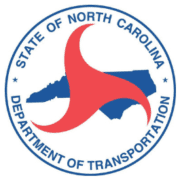NCDA&CS: Recent Uptick in Use of Credit Card Skimmers at NC Gas Pumps
-Press Release, NCDA&CS
As the weather turns warmer and many North Carolinians make travel plans for the summer months, the North Carolina Department of Agriculture and Consumer Services Standards Division is offering a few tips on how to stay safe at the pump after a recent uptick in credit card skimmers have been found.
In the first quarter of 2019, inspectors with the NCDA&CS Standards Division and partnering local authorities found 23 credit card skimmers in gas pumps around the state through routine inspections at the pump. That compares to five skimmers in the first quarter of 2018 and 37 over the entire year.
Also of note is that 11 of the 23 skimmers found in the first quarter were found in Johnston County. This includes five at one location in the town of Selma, and implies a concerted effort to target the Johnston County area with skimmers. Skimmers were also found in Davidson, Mecklenburg and Polk counties.
“On return visits, we found that some of the same stores were hit a second time after the first device was already removed. This leads me to believe that someone is, or at least was, actively working this area,” said Chad Parker, Standards Division measurement section manager. “We have completed our sweep and now our inspector is returning to these stores for his annual inspections.”
Skimmers are electronic devices placed inside a gas pump which collect data whenever a credit or debit card transaction is made at that pump. The owner of the skimmer then returns and collects the device, along with the credit or debit card information stored on it.
For the average customer, there is no way of knowing if there is a skimmer inside a pump, said Parker. Despite that, there are a few steps that consumers can take to reduce the risk of having their information stolen.
- If possible, do not use a card at the pump. Paying for your gas inside, with either a card or cash, allows you to pay at a machine that has an employee watching over it all day.
- If you do use a card outside, run it as a credit transaction, rather than debit. This way, the machine will ask for your ZIP code instead of your PIN, which leave you less vulnerable if a skimmer picks up your information.
- Ask the store what kinds of measures they have taken to protect your information from being stolen
The Standards Division inspects gas dispensers for accuracy and fuel quality. Inspectors with the division check dispensers for the presence of skimmers by request, complaint or during routine gas pump inspection.















